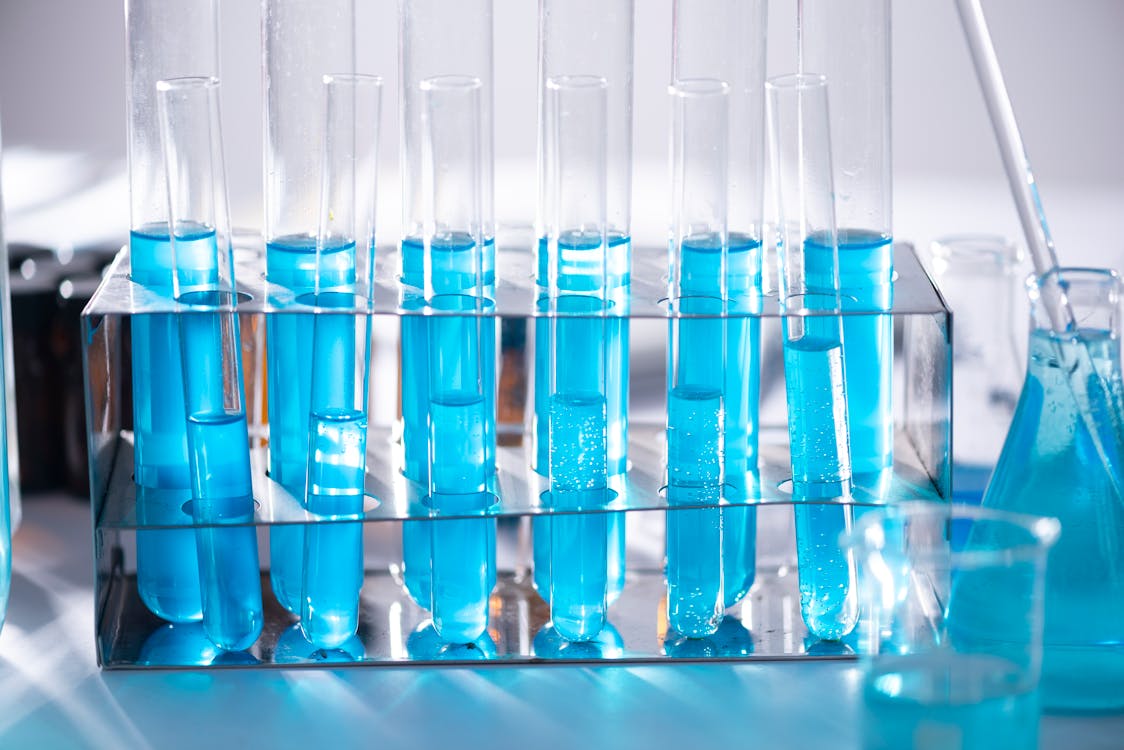"Prudent" Biotech Bets

Image Source: Unsplash
John Buckingham is a leading value-oriented money manager and editor of The Prudent Speculator; here, he reviews two of his recommended biotechnology stocks following the release of their latest earnings reports.
Amgen (AMGN) posted excellent fourth quarter numbers and issued an upbeat long-term outlook. Amgen reported that it earned $4.36 per share (versus the $4.07 estimate).
Global product sales for the biotech giant increased 3% versus the same quarter a year ago, as substantial volume growth across multiple products offset pricing headwinds.
Sales of the firm’s leading drug Enbrel declined by 13% year-over-year, impacted by lower inventory levels, price, and volume reductions. Amgen’s second-best seller, Prolia, grew 17% year-over-year and now represents 13% of overall product sales.
Looking ahead, management shared revenue and earnings estimates for 2022, anticipating a range of $25.4 billion to $26.5 billion for the former and between $17 to $18 per share for the latter, as volume growth is expected to offset price headwinds.
Further out, the team expects biosimilar launches and sales from new products to more than offset the impact of future competition for denosumab (Prolia/Xgeva), Otezla, and Enbrel to achieve mid-single-digit revenue growth and high single-digit to low double-digit EPS growth from 2022 to 2030.
Regarding capital returns to shareholders, management suggested a goal of paying out greater than 60% of non-GAAP net income on average through 2030, down from a ratio of over 70% from 2012 to 2021.
Despite the litany of patent protections for Amgen’s Enbrel, we expect lawsuits and competition to heat up in 2023 (when competitor Humira loses exclusivity) with six biosimilar alternatives now cleared by the FDA. Nevertheless, the firm’s sound balance sheet and significant cash flow generation allow it to invest in defending its position through R&D and via acquisitions.
Shares change hands at a very reasonable forward P/E multiple of 13. With the dividend increased 10% last December, the yield is now at 3.4%. Also noting our view of the company’s strong pipeline of new therapeutics, our Target Price for AMGN has been boosted to $304.
Shares of Gilead Sciences (GILD) sank after the big biotech concern released Q4 financial results. The $0.69 of adjusted earnings per share was negatively impacted by a legal settlement with GlaxoSmithKline’s (GSK) ViiV segment, costing $0.80 per share, and dilution from a decision to exercise a collaboration option with Arcus Biosciences (RCUS), resulting in a $0.38 impact.
Management appears to have been a tad overzealous with its raising of full-year EPS guidance last November, bumping it to $7.90 to $8.10, from $6.90 to $7.25, as the the company ended the year earning $7.28 per share.
The quarter was boosted by another period of strong sales ($1.4 billion in Q4 vs. $1.9 billion in Q3) of the firm’s COVID-19 therapy Veklury (remdesivir), as the number of daily hospitalizations accelerated throughout December.
Total product sales excluding Veklury increased 8% to $5.8 billion for Q4 compared to the same period in 2020, primarily reflecting higher demand for Biktarvy (GILD’s latest HIV treatment formulation) and favorable pricing dynamics in HIV, as well as contributions from the oncology segment (Trodelvy and Cell Therapy).
The $1.25 billion (plus 3% royalty of future sales) pound of flesh extracted by Glaxo’s ViiV for Biktarvy is yet another example of the cutthroat and unpredictable nature of Big Pharma.
Of course, the 80%+ gross margins for the firm’s HIV franchise are sure keep a target on its back, even as formulations with purportedly fewer long-term side effects push patent expirations out to the latter part of the current decade for both treatment (Biktarvy) and prophylactic indications (Descovy).
With regard to Veklury (remdesivir), the Street expects sales to dramatically decline from the $5.6 billion in 2021 to below $2 billion in 2022, but the estimate could prove too pessimistic.
Demand could remain elevated even if we move to an endemic state, given that usage seems to track hospitalizations, while vaccination rates (assuming 2 mRNA doses) have tended to hover around 65% and the rate of those boosted is even lower.
And, though taken with a grain of salt, management continues to see a role for intravenous administration alongside oral therapeutics, especially if strain resistance patterns emerge over the long-term.
The biggest wildcard (with arguably the largest upside) remains the future of Gilead’s oncology portfolio, which is still too small to move the needle yet. But strong performers in Yescarta and Trodelvy (from the Kite Pharma side of the house) remain promising with both expected to breach $1 billion in sales by 2023.
We continue to like the single-digit P/E multiple, while robust cash flow generation ought to afford additional spending for R&D and/or acquisitions and provide support for the robust dividend (the yield is 4.6%). Our Target Price has been adjusted to $86.
Disclaimer: © 2022 MoneyShow.com, LLC. All Rights Reserved.



